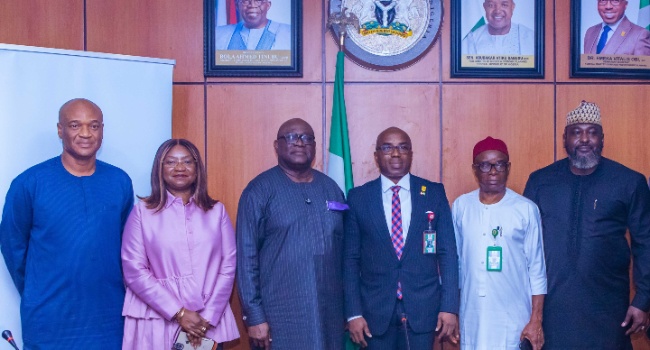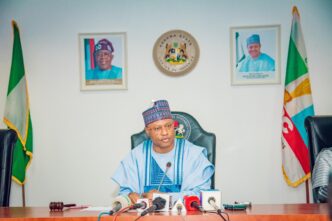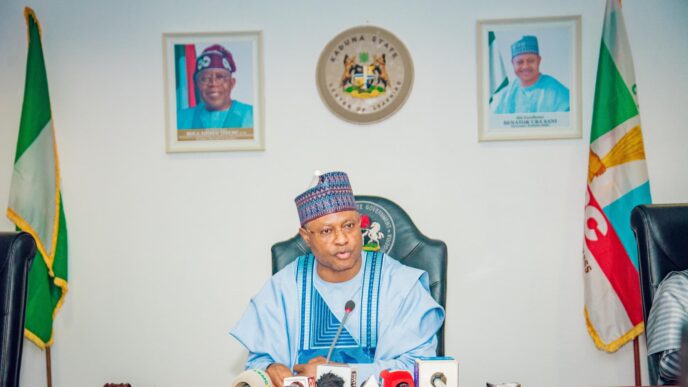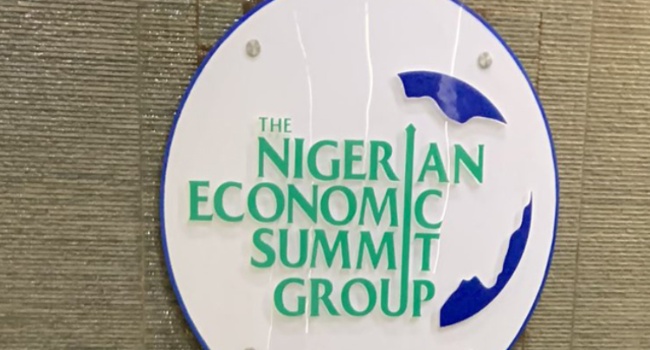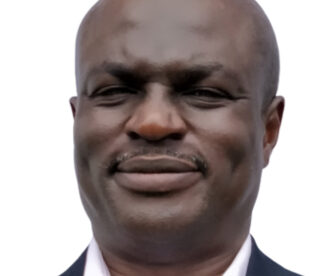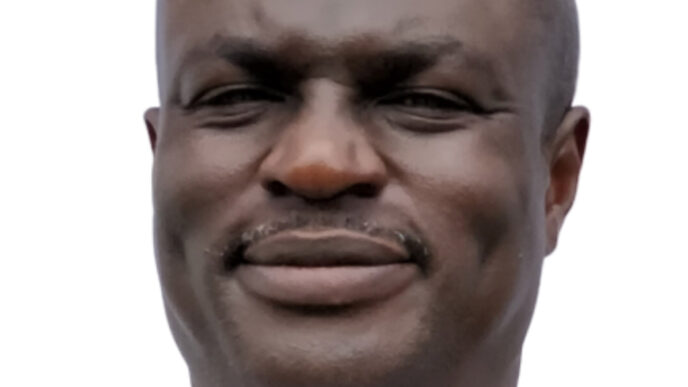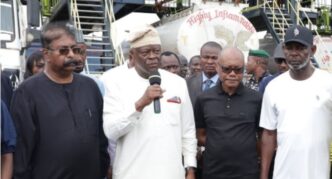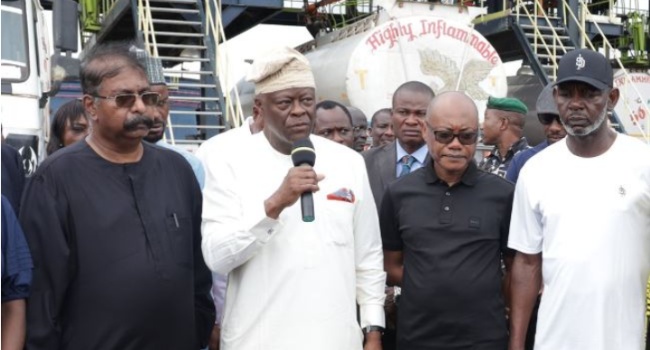The federal government says the disbursement of support funds to local manufacturers is yet to commence because the ministry of finance and the ministry of budget and economic planning are still working on the policy framework.
Atiku Bagudu, minister of budget and economic planning, spoke on Friday during a press conference at the 30th Nigerian Economic Summit (NES) in Abuja.
The summit, themed ‘Collaborative Action for Growth, Competitiveness and Stability,’ is scheduled to be held from October 14 to October 16.
Bagudu was represented by Emeka Obi, permanent secretary of the ministry.
Advertisement
On October 5, 2023, Vice-President Kashim Shettima said the federal government will support local manufacturers with N75 billion by March 2024, in a bid to bolster the manufacturing sector.
Five months later, Bagudu said the federal government would provide N100 million through a consumer credit fund to support the manufacturing sector.
While responding to the question on the progress of the support at the summit, the minister said the ministry is concerned with funds disbursement.
Advertisement
However, Bagudu said the ministry of finance needs to come to a consensus on the release of funds.
“The efforts of the ministry of budget and economic planning ensure that funds are disbursed to the manufacturers who should receive them,” he said.
“At the ministry, our role is coordinating, and in our coordinating role, we partner, we contact, and we go to dialogue with the federal ministry of finance.
“We have to build consensus and come up with a common strategy and policy framework that will be able to address the payments and any issue at the national level.
Advertisement
“So that’s the practical step we take, ensuring that when a fund has been approved to be disbursed to solve a national problem, we follow that path.
“And I’m very sure that any issue of such on our table will not only be solved via the method I just described but also via this material retribution. So it’s sufficient to say that the funds mentioned, I’m very sure that the ministry is working on it.”
Speaking about the forthcoming summit, Bagudu said this year’s NES is aimed at addressing the current economic challenges, stabilising the economy and repositioning Nigeria on the regional and global stage.
He said the summit will also focus on product complexity and competitiveness, with a view to the realisation of the country’s enormous potential.
Advertisement
“It will also focus on Nigeria’s leadership role in driving the continent’s transformation through institutions, investment, integration, industry, and innovation,” he said.
“The summit discussions will be designed around five sub-themes, namely; fostering inclusive development; unleashing business dynamism; building a more secure society; igniting innovation and digital evolution and promoting stakeholder collaboration.”
Advertisement
‘NIGERIA HAS POTENTIAL TO LEAD INDUSTRIALISATION IN AFRICA’
On his part, Olaniyi Yusuf, chairman of the Nigerian Economic Summit Group (NESG), said in the next five years, Nigeria has the potential to lead industrialisation in Africa.
Advertisement
Nevertheless, he said it is through collaboration that this milestone can be achieved.
“It is only through collaborative action between government, business, and civil society that we can unlock Nigeria’s vast potential,” Yusuf said.
Advertisement
“Despite these challenges, the potential of our country is clear. Around the world, the same question is being asked: Can Nigeria reach and exceed its potential? If so, how? And if not now, when?
“Though we face tough times, there are also incredible opportunities ahead.
“In the next five years, Nigeria has the potential to become a leading industrialising nation in Africa.
“We can reform our political, policy, and regulatory systems, unlock local content development, foster sub-national economic diversification, and create a globally competitive business environment.”
Yusuf said when this is done, it will improve the lives of millions of Nigerians, reduce poverty, and increase foreign direct investment (FDI) inflows into the continent.
Add a comment
